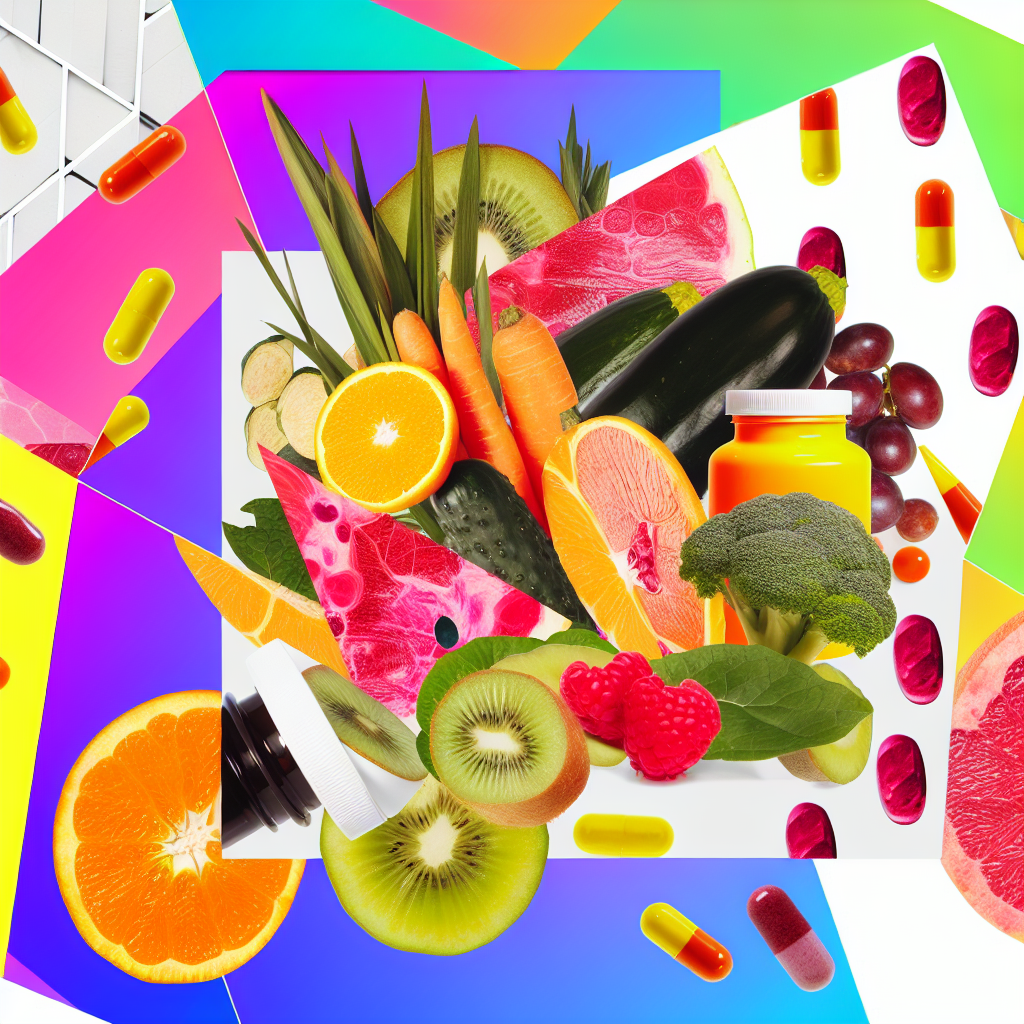Vitamin C is one of the most essential nutrients for staying healthy and energized. Known for its powerful role in boosting your immune system, it also helps maintain your skin’s glow, strengthens the body’s natural defenses, and protects against oxidative stress. The best part? You don’t need fancy supplements to meet your Vitamin C needs. Many fresh fruits and vegetables are packed with this amazing vitamin and are easily accessible. In this article, we’ll discuss why Vitamin C is vital, highlight the best Vitamin C-rich foods, and share practical tips to incorporate them into your diet.
Why Vitamin C Is Essential for Your Health
Vitamin C, also called ascorbic acid, is a water-soluble vitamin that your body can't produce or store. This makes it essential to get an adequate source from your diet every day. Here’s why this nutrient is crucial:
Boosting Your Immune System
Vitamin C strengthens your immune system by increasing the production of white blood cells—the body's natural defenders against illnesses and infections. Its antioxidant properties also help protect these cells from harmful free radicals, ensuring your immune system stays in top shape.
Promoting Healthy Skin
Vitamin C plays a vital role in collagen production, which helps maintain the skin’s elasticity and reduces wrinkles. It also repairs damaged tissues, making it beneficial for recovering from injuries, intense workouts, or everyday wear-and-tear on the body.
Reducing Oxidative Stress
Oxidative stress, caused by an overload of free radicals, leads to aging and chronic diseases. Vitamin C acts like an antioxidant superhero, neutralizing these harmful molecules and protecting your body from inflammation and long-term damage.
Improving Iron Absorption
Low iron levels can lead to fatigue and anemia. Pairing Vitamin C with iron-rich, plant-based foods like spinach helps your body absorb iron more efficiently. This combination is an easy way to keep your energy levels up.
The Best Foods High in Vitamin C
There’s no need to look far for Vitamin C-rich foods—many fruits and vegetables available at your local market are full of this nutrient. Let’s break them down into two categories:
Fruits Rich in Vitamin C
Fruits are one of the tastiest and easiest ways to load up on Vitamin C. Here are top options to consider:
- Oranges: The classic choice, with about 70 mg of Vitamin C per medium fruit. Great for breakfasts or snacks.
- Strawberries: Sweet, juicy, and packed with 98 mg of Vitamin C per cup. Perfect in smoothies or as a topping for yogurt.
- Kiwi: A fun addition to your plate, each kiwi contains about 71 mg of Vitamin C.
- Guava: A tropical superstar delivering up to 377 mg of Vitamin C per fruit. It’s a true nutrient powerhouse.
- Papaya: Perfect for smoothies or fresh fruit bowls, with 88 mg of Vitamin C per cup.
- Pineapple: Tangy and versatile, offering around 79 mg of Vitamin C per cup.
Vegetables Packed with Vitamin C
While fruits steal the spotlight, vegetables are equally impressive in their Vitamin C content:
- Red Bell Peppers: With a remarkable 190 mg per cup, these peppers are one of the richest sources of Vitamin C.
- Broccoli: Delivering about 81 mg per serving, broccoli pairs wonderfully in stir-fries or steamed dishes.
- Kale: This leafy green superfood offers 80 mg per cup and works well in salads or smoothies.
- Brussels Sprouts: Roasted Brussels sprouts provide 75 mg of Vitamin C per cup and make a delicious side dish.
- Spinach: While lower in Vitamin C (28 mg per cup), spinach pairs perfectly with iron-rich dishes and other Vitamin C-rich foods.
How Much Vitamin C Do You Need Every Day?
Getting the right amount of Vitamin C is crucial for maintaining optimal health. The daily recommended allowance (RDA) varies depending on age, gender, and life stage:
- Adult Men: 90 mg/day
- Adult Women: 75 mg/day
- Pregnant Women: 85 mg/day
- Children: 15–75 mg/day, depending on age
Deficiencies are rare but can result in fatigue, dry skin, weakened immunity, and slow healing of wounds. On the other hand, taking too much Vitamin C (over 2,000 mg in a day) could lead to side effects like nausea or stomach cramps. Balance is key!
Simple Ways to Incorporate Vitamin C Into Your Diet
Adding Vitamin C-rich foods to your meals can be easy and enjoyable. Here are some ideas to get started:
- Start with Smoothies: Blend strawberries, papaya, and kale with your favorite yogurt or almond milk for a nutritious breakfast.
- Snack on Fresh Produce: Keep sliced kiwi, guava, or raw bell peppers handy for satisfying snacks.
- Add Citrus to Salads: Toss spinach or kale with orange slices and nuts for a bright, nutrient-packed salad.
- Experiment with Roasted Veggies: Roast broccoli or Brussels sprouts for a delicious and healthy dinner side dish.
- Preserve Nutrients: Eat vegetables like bell peppers raw or steam them lightly to retain more Vitamin C.
Conclusion
Vitamin C is much more than an immunity booster—it’s a vital nutrient that supports your skin, enhances iron absorption, and protects your body from oxidative stress. Thankfully, nature offers a rich variety of Vitamin C-filled fruits and vegetables, making it easy to incorporate into your meals. From snacking on strawberries to roasting bell peppers, there’s a world of delicious options awaiting you. Start adding these foods to your plate and unlock the incredible health benefits of Vitamin C today!
